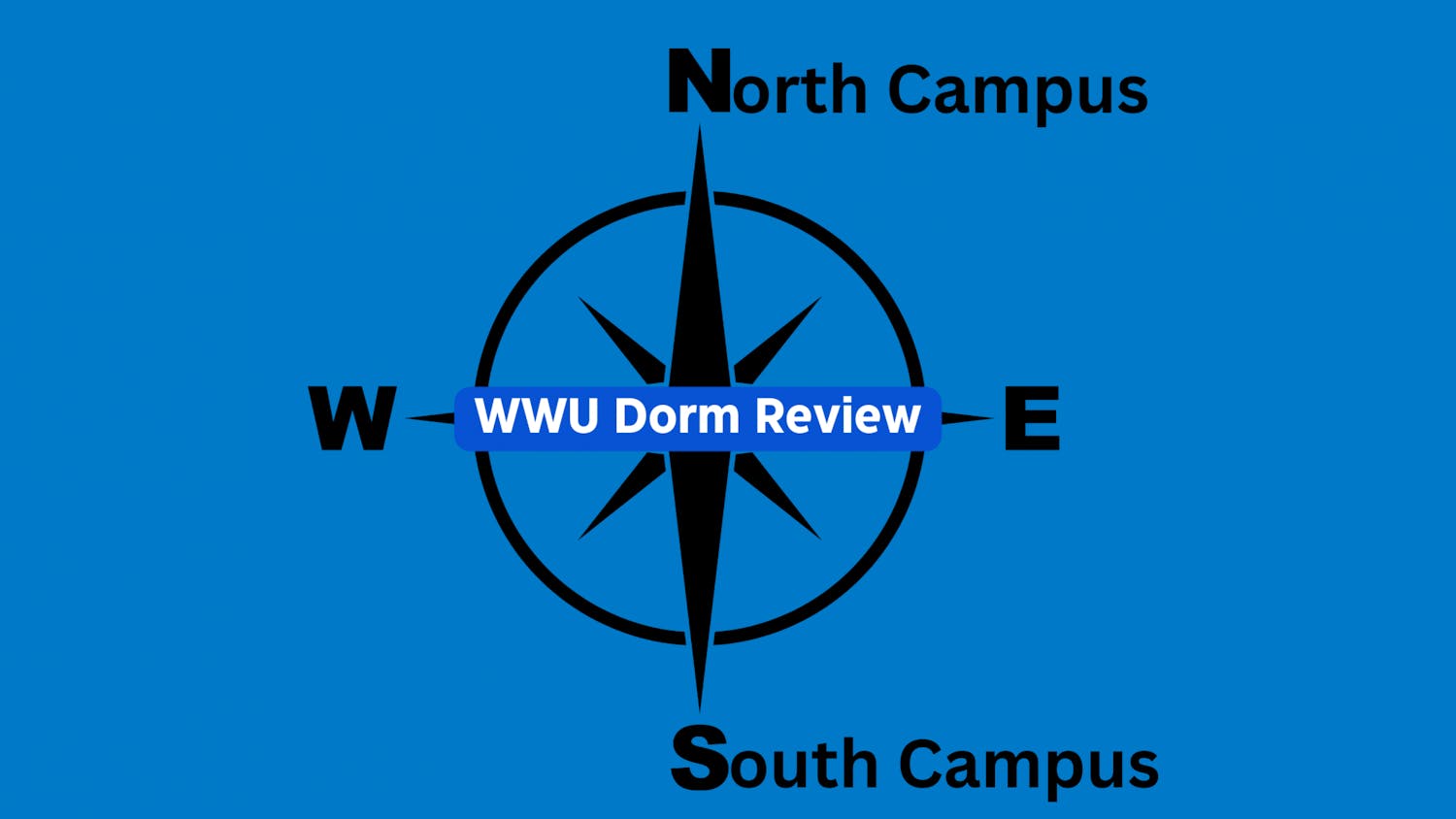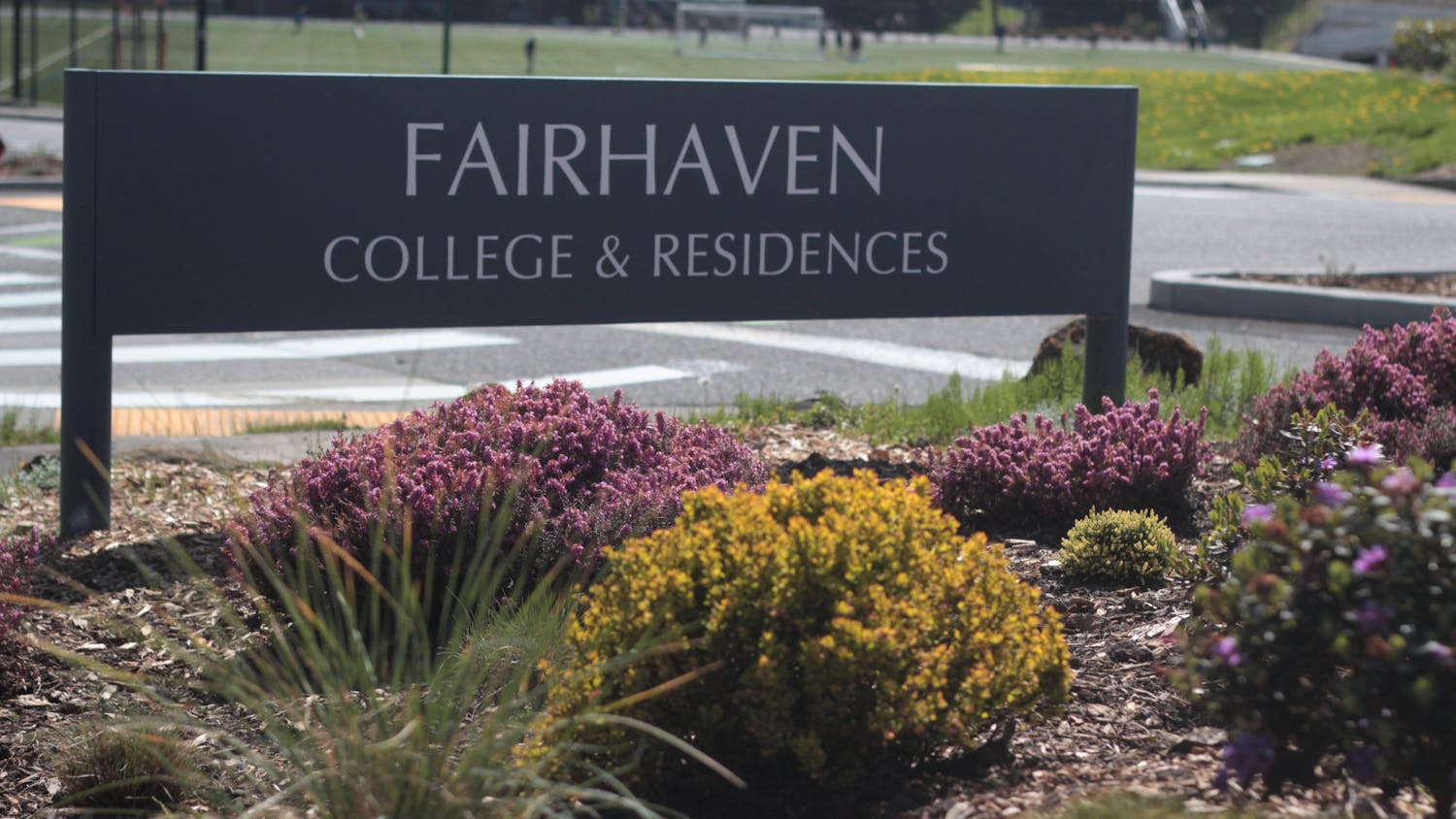The Western Undergraduate Exchange award reduces out-of-state students’ tuition rate to 150% of the resident tuition rate at participating public colleges and universities in the West.
Public universities in the U.S. charge higher tuition rates for out-of-state students because residents’ taxes fund institutions in their state. This system can discourage students from leaving their home state for university, even though certain programs may only be offered elsewhere.
“The Alaska university system is subject to routine, devastating budget cuts,” said Claire Wilkerson, a WUE recipient at Western from Anchorage, Alaska. “Universities out of state tend to offer a wider variety of classes and academic options, which is good for someone like me who’s undecided.”
The WUE award caps non-resident tuition at Western Washington University to $11,641.50. Without the award, the estimated non-resident tuition for the 2022-23 academic year is $25,668, which is more than three times the state resident rate.
WUE is a student access program offered through the Western Interstate Commission for Higher Education, a nonprofit regional interstate compact that covers 15 U.S. states and 5 Pacific territories.
To accommodate each institution’s economic situation, the WUE award is decentralized, allowing universities to determine student eligibility. At Western, all incoming out-of-state students are considered for WUE based on their application for admission.
According to Western’s Scholarship Center, WUE is the most prestigious scholarship for non-resident students, with awardees in the top 10-15% of incoming first-years with an average unweighted GPA of 3.95.
Out of 2,084 non-resident students enrolled in fall 2022, only 384 earned a WUE scholarship.
Wilkerson said her high school counselors emphasized WUE as an opportunity for students who wanted to attend university out of state.
“I remember laboring under a sort of intense feeling of stress and emotional pressure because I knew tens of thousands of dollars were riding on how well I did in this particular class,” Wilkerson said.
While Wilkerson worried about a lack of opportunities in her home state, another student said location and academic preferences were factors that made them want to go out of state.
“California in general is pretty expensive to live there, pretty hot, a lot of traffic,” said Jordan Van Haften, a WUE recipient at Western from Murrieta, California. “I just didn’t really like the area. It was way too crowded.”
Van Haften said they were drawn to the communication sciences and disorders major at Western. While tuition at University of California schools compared to Western’s non-resident tuition, said Van Haften, they chose to attend Western for its location and academic programs.
“In order to go to anywhere that wasn’t super conservative [in California], I would have to go to a big city, which I just didn’t want to deal with,” Van Haften said.
WUE helps universities by attracting students who would not otherwise have left their home state, said Gerry Pollet, a WICHE commissioner for Washington State and Democratic representative for the 46th district in the Washington State House of Representatives.
“The schools that participate in WUE are doing so because it adds to the pool of money they collect outside of their state enrollment subsidy,” Pollet said.
Congress signed the Western Regional Education Compact into law in 1953 to diversify skills in the labor force after World War II. This act became WICHE, one of four U.S. regional compacts, including the Southern Regional Education Board, New England Board of Higher Education, and Midwestern Higher Education Compact.
Pollet said WUE helps the state economy because many Washington residents attend university in another state and then return to the Washington workforce with skills only taught elsewhere.
“[WUE] definitely does increase accessibility, including for Washington residents,” Pollet said. “Washington residents save just a huge amount of money through WUE.”
Others argue that Western’s rigorous WUE requirements prevent underprivileged students from accessing an out-of-state education. According to Western’s Office of Institutional Effectiveness, 572 incoming students had a high school GPA of 3.9 or above for fall 2022.
“[WUE] is really subsidizing education for people like me who come from a middle-class background but aren’t wealthy enough to be able to pay full out-of-state tuition,” Wilkerson said. “It’s subsidizing out-of-state tuition for a very specific subsection of the middle class.”
Wilkerson said state and federal governments should reform university funding to make it more affordable for students attending public universities in every state.
“How competitive a WUE scholarship is depends upon the criteria set by the enrolling institution, the number of applicants and the academic credentials which each applicant possesses,” said Margo Colalancia, director of student access programs at WICHE.
While Western sets a high GPA for WUE eligibility, the university allows students in every major to earn the award, unlike many participating schools that want to promote specific programs.
“Part of [supporting out-of-state students] comes from probably having more scholarships available for people who aren’t able to obtain the WUE,” Van Haften said. “It can definitely also be difficult, like, moving to a whole state. There are extra costs to be aware of.”
Cezar Mesquita, the director of admissions at Western, said he encourages students to schedule an appointment with the Office of Student Financial Services and the Scholarship Center.
Western’s Office of Admissions also awards the Western Achievement Award and Western Award for Excellence to incoming out-of-state students based on their unweighted cumulative GPA. These scholarships are worth less than WUE but help support students who have a 3.35 to 3.75 GPA range and do not meet the average 3.95 GPA for WUE.
“We encourage out-of-state students to seek opportunities from their home communities, as the majority of private scholarships are transferable and can be used at any college,” said Dina Murphy, the assistant director of financial aid at Western. “Local banks and credit unions, fraternal organizations and even employers — student and parents’ — are great places to look at for scholarships.”
Murphy added that Western’s Scholarship Center website includes a list of private scholarships and scholarships offered through Western. While the WUE is only for incoming first-year students, many of Western’s scholarships are available to current undergraduates.
“We’d like to see WUE grow. We’d like to promote it better to create opportunities for more high school students to be aware of this,” Colalancia said.
Mia Limmer-Lai (she/her) is one of two copy editors for The Front this quarter. She is a second-year environmental studies and journalism student at Western with a minor in honors interdisciplinary studies. In her free time, she enjoys reading books and listening to punk music. You can reach her at mianlimmerlai.thefront@gmail.com.






